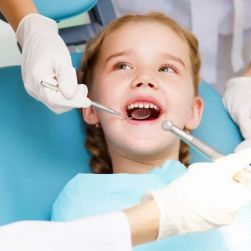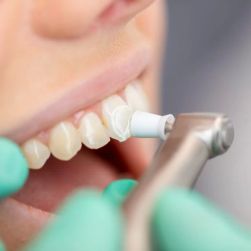Understanding Gum Disease in Seniors: Prevention and Care
Gum disease, medically known as periodontal disease, is a significant concern for many seniors across the United States. As an age-related condition, it can severely impact the quality of life among the elderly. With advancements in healthcare, people are living longer than ever, and maintaining oral health is paramount for enjoying those golden years. In this article, we will delve into the specifics of gum disease in seniors, exploring its causes, symptoms, prevention, and care solutions.
Causes of Gum Disease in Seniors
The aging process brings numerous changes to an individual's body, and oral health is no exception. Seniors often experience a decline in dental health due to factors like medication, reduced salivary flow, and systemic diseases such as diabetes. Gum disease in seniors is primarily caused by plaque buildup on teeth. If not adequately addressed, this can lead to serious infections.
Studies indicate that nearly 68% of adults aged 65 and older have gum disease according to CDC. The lack of proper dental hygiene and infrequent dental checkups exacerbate this condition. Seniors are also at risk due to receding gums, which make it easier for bacteria to settle beneath the gum line, leading to infections and eventual tooth loss.
Symptoms to Watch Out For
Early detection of gum disease in seniors is crucial to prevent severe complications. Common symptoms include redness, swelling of the gums, bleeding while brushing, and receding gum lines. In advanced stages, one might observe loose teeth, persistent bad breath, and mouth sores.
It's essential for seniors and their caregivers to regularly inspect oral health and monitor any changes. Persistent symptoms should not be ignored, and professional dental consultation should be sought promptly.
Impact of Gum Disease on Overall Health
The mouth is the gateway to the body, and its health can significantly affect overall wellness. Gum disease in seniors is linked not only to oral health problems but also to systemic health issues like heart disease and stroke. This is because bacteria from the mouth can enter the bloodstream, leading to inflammation and affecting other organs.
A study published in the Journal of Dental Research highlights the connection between periodontal disease and chronic conditions such as arthritis and Alzheimer's disease. Therefore, maintaining oral health is critical to avoiding these broader health implications.
Caring for Seniors' Gum Health
Managing gum disease in seniors requires a proactive approach. Regular dental checkups are essential, providing opportunities for professional cleaning and early intervention for potential issues. At-home care should include thorough brushing and flossing, and the use of antimicrobial mouthwash can help reduce bacterial presence.
Caregivers should assist seniors who face challenges in performing daily oral hygiene tasks due to mobility issues or cognitive decline. Ensuring a proper diet that supports oral health and staying hydrated also contribute positively.
Preventive Measures
Prevention is always better than cure when it comes to gum disease. Seniors should be educated on the importance of maintaining oral hygiene routines. Here are some key preventive measures:
Nurturing these habits can significantly reduce the incidence of gum disease and its associated complications.
Actionable Solutions and Recommendations
In conclusion, gum disease in seniors requires attention and action to prevent serious health challenges. By understanding its causes and symptoms, and implementing preventive care routines, seniors can maintain their gum health effectively.
Action steps include encouraging regular dental visits, adopting robust oral hygiene practices, and monitoring systemic health conditions. With collective efforts from seniors, caregivers, and dental professionals, the impact of gum disease can be minimized.
For more detailed guidance and resources on maintaining senior oral health, visit Dentistry Toothtruth.






